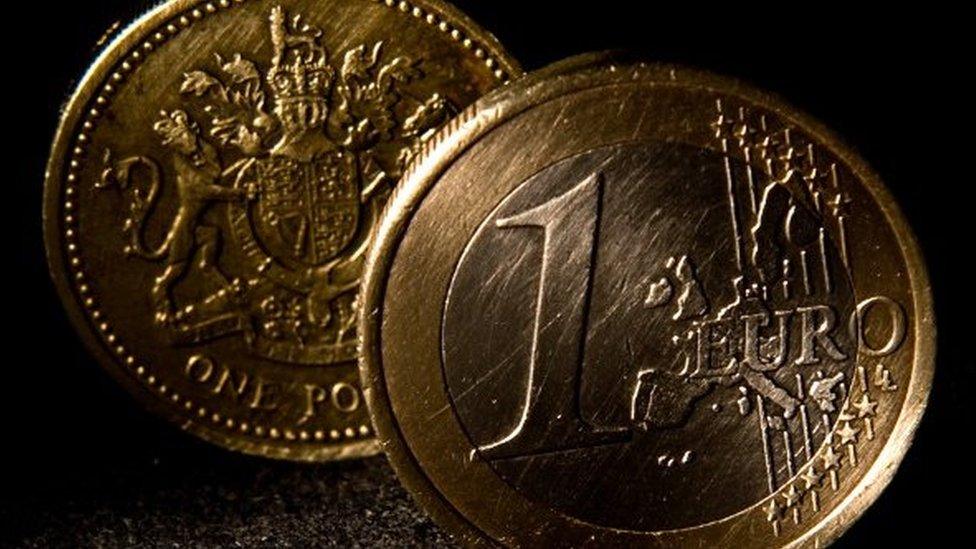Why business opinion matters in the EU referendum
- Published
- comments

Both sides in June's EU referendum have been keen to roll out business leaders to support their cause
In his memoirs, Tony Blair wrote that one of the reasons business support for New Labour in the 1990s was important was for the message it sent voters - if businesses agree with us, then that is a powerful, non-political endorsement of our offer to you.
And even in an era before the collapse of trust in politicians, the word "non-political" carried a lot of weight.
A similar dynamic has been at play during the European Union referendum campaign.
Both sides have been keen to roll out business leaders to support their cause, believing that voters are willing to listen to people who actually make decisions on employing people and investing in the UK economy.
Reputable polls
For Remain, a series of business big-hitters have backed the UK staying in the EU, saying leaving would risk job losses and threaten economic growth.
They include Sir Roger Carr, chairman of the aerospace giant BAE, Dame Carolyn McCall, chief executive of easyJet, Bob Dudley, chief executive of BP, and Douglas Flint, the chairman of HSBC.
Remain supporters insist that the weight of business opinion is on their side.
And certainly nearly all the reputable polls on the issue have put business support for Remain ahead of support for Leave.
Today's by the British Chambers of Commerce, one of the largest, puts "Remain" leading "Leave" among its members 54% to 37%.
Leave supporters respond by saying that larger businesses tend to be more pro-EU and speak for the "establishment", smaller businesses and those that do not export to other parts of the EU are more negative and that they have some significant business voices on their side.
Ray of sunshine
They include Tim Martin, chairman of pub chain JD Wetherspoons, Luke Johnson, chairman of Patisserie Valerie and the man behind the success of Pizza Express, and Rocco Forte, chief executive of Rocco Forte Hotels.
And one ray of sunshine for the Leave campaign from the BCC survey is that the poll lead for remain among businesses has fallen from 30% to 17%.
Though it is also worth noting that 90% of those that responded to the poll said that their mind was now settled, which suggests there is not much chance of a substantial further shift before the referendum on 23rd June.
'Project fear'
The BCC survey, and today's study by the National Institute of Economic and Social Research - which is expected to claim a high economic cost if Britain leaves the EU - kicks off another week where the economy will dominate much of the EU debate.
On Wednesday George Osborne appears before the Treasury Select Committee to be questioned on the Treasury report which said that the UK economy could be 6% smaller by 2030 if Britain left the EU.
On Thursday the Governor of the Bank of England will appear in public for one of the last major economic reports from the Bank on the state of the UK economy before the referendum.
Mark Carney is likely to strike a gloomy note after manufacturing and service growth data suggested that economic growth had fallen to as low as 0.1% in April, down from 0.4% for the first three months of the year.
How much he attributes that to Brexit risk or just general economic gloom will be fascinating.
The week will be rounded off by the International Monetary Fund's annual study of the British economy which is set to say that leaving the EU will carry a significant bill for Britain.
Mr Osborne wants to keep the focus on the economic argument that leaving the EU is bad for Britain.
For those who support Brexit, Project Fear, as they describe it, is in full voice.